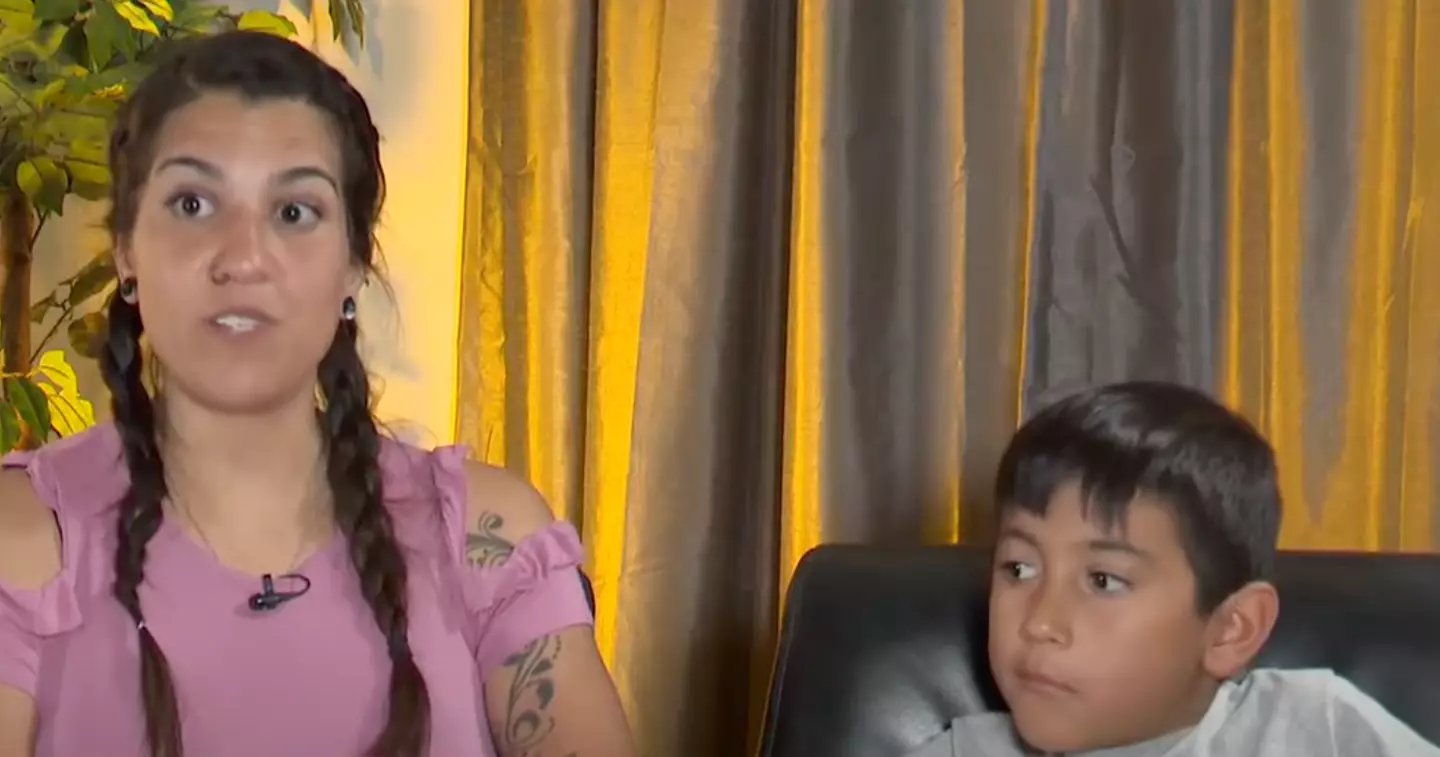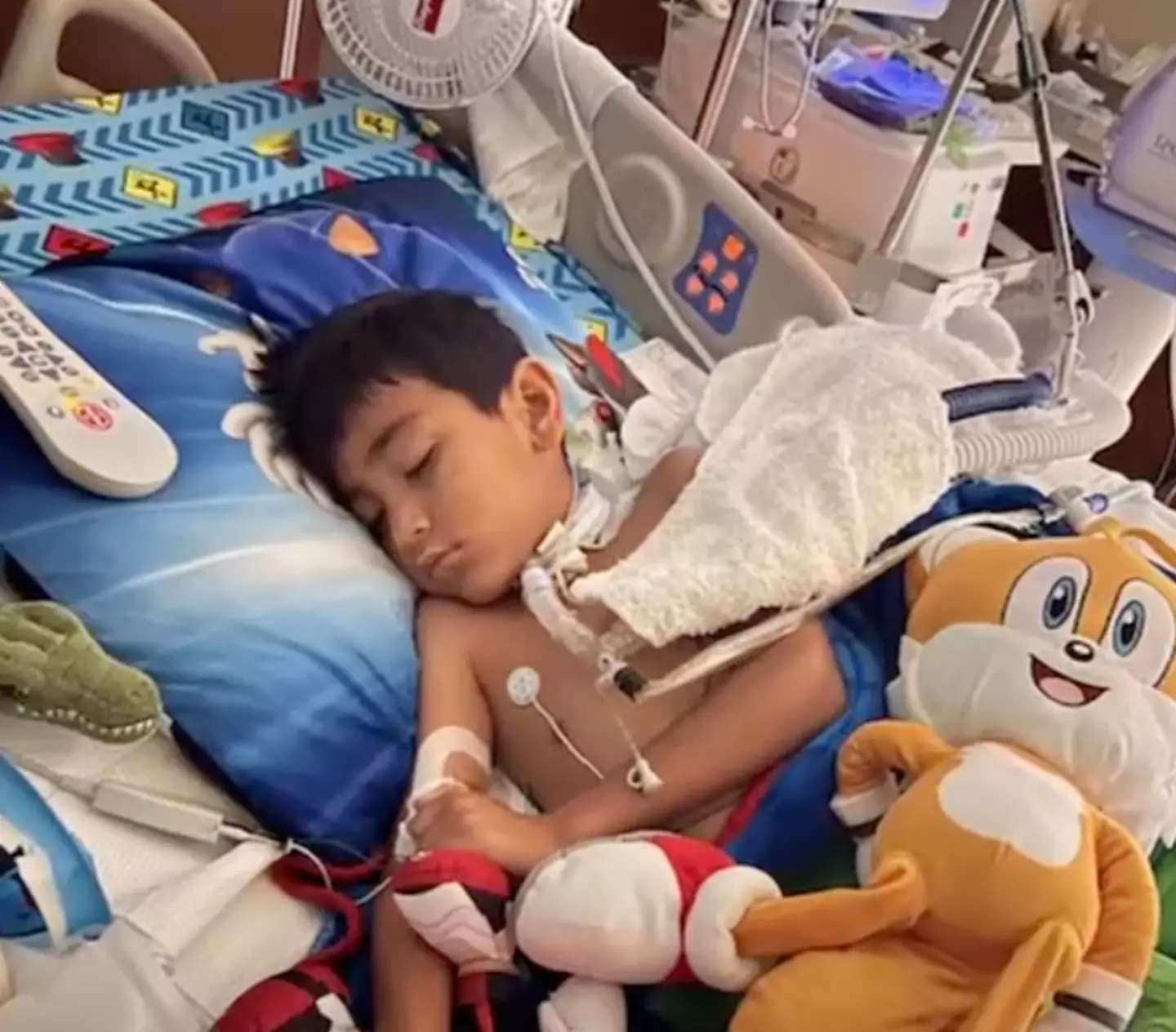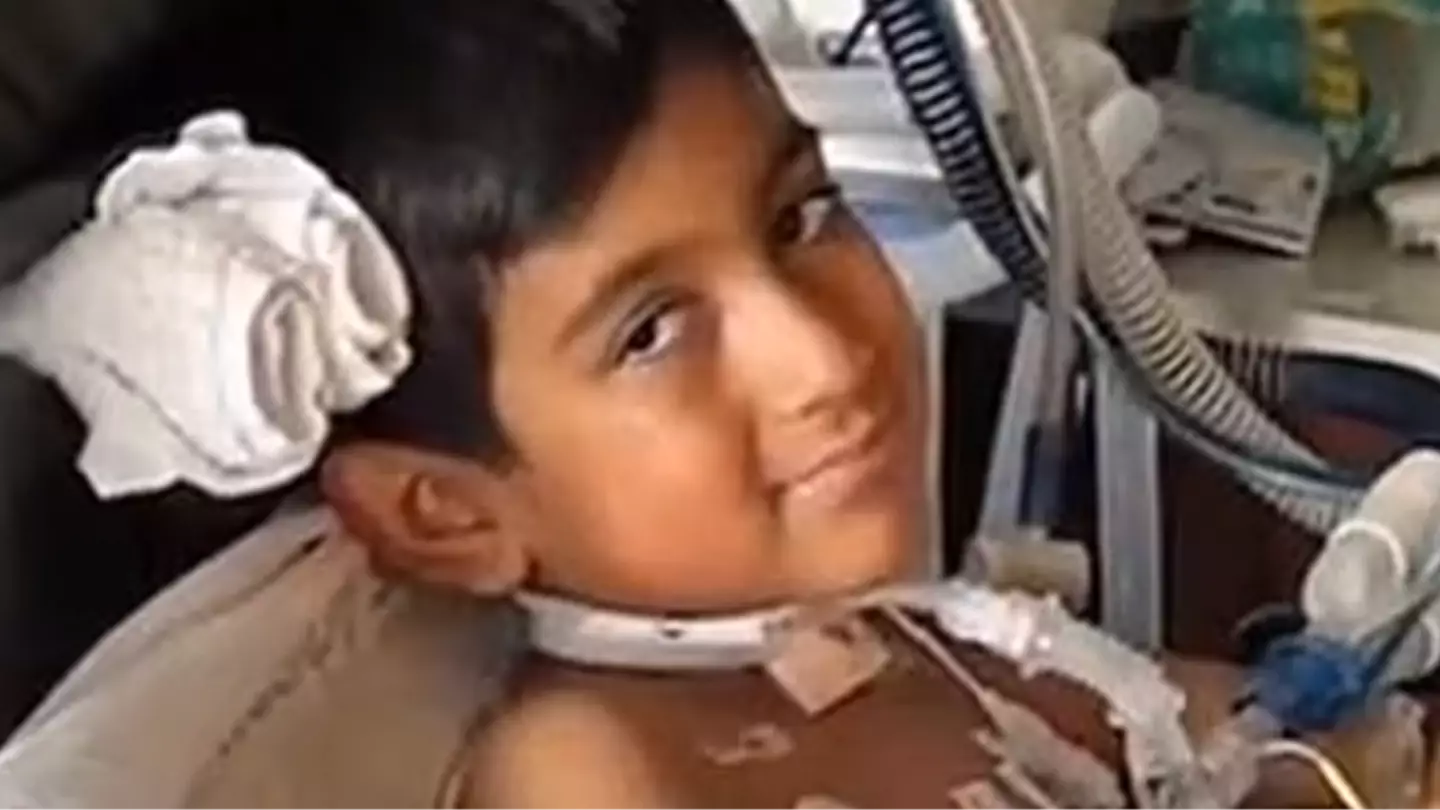A mother became increasingly worried when her son’s condition worsened after being initially misdiagnosed with the flu.
Six-year-old Witten Daniel, from Lubbock, Texas, was quickly taken to the hospital as his mother grew anxious about his deteriorating health.
Medical professionals initially informed his mother, Casey Daniel, that Witten seemed to have the flu. However, his condition rapidly declined.
Within hours, Witten lost the ability to walk, speak, or breathe independently, causing immense fear for his mother.
In an interview with WAFB, she expressed: “There are no words to describe how horrifying it is to see your child in that kind of condition.”
Further tests revealed a concerning diagnosis: Witten suffered from cavernous malformation, also known as cavernoma.

The Mayo Clinic states that this condition can be very serious and potentially fatal.
As explained by the medical center: “Cerebral cavernous malformations (CCMs) are groups of tightly packed, irregular small blood vessels with thin walls. They may be present in the brain or spinal cord. The vessels contain slow-moving blood that’s usually clotted. CCMs can cause blood to leak in the brain or spinal cord. CCMs may leak blood and lead to bleeding in the brain or spinal cord, known as a hemorrhage. Brain hemorrhages can cause many symptoms, such as seizures. Depending on the location, CCMs also can cause stroke-like symptoms such as trouble with movement or feeling in the legs and sometimes the arms.”
Devastatingly, doctors informed Casey that there was little they could do to improve Witten’s quality of life, adding that he would likely never walk again and would need help with breathing.
Refusing to give up, Casey turned to online research and found a medical paper by Dr. Jacques Morcos, a neurosurgeon based just eight hours away in Houston.

Dr. Morcos, who specializes in cavernoma, was contacted by Casey. She shared Witten’s condition with him, hoping for a solution.
Dr. Morcos expressed confidence in his ability to treat Witten and arranged for him to be transferred to his facility for surgery in collaboration with a pediatric neurosurgeon.
After hours in surgery, the team shared promising news: the operation was successful.
Now seven years old, Witten has made significant strides in his recovery. He has started second grade and received the go-ahead to resume playing baseball.

